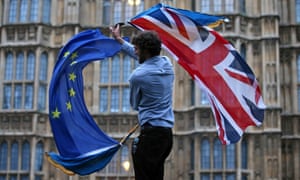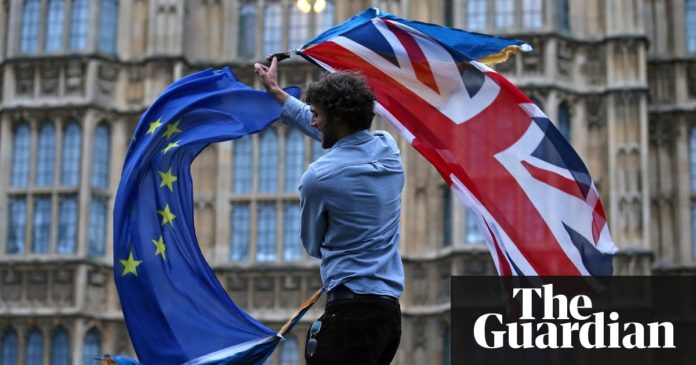
MPs will have a vote on remaining in the European Economic Area – effectively a vote on the single market – after a shock defeat for the government in the Lords.
It means the Brexit strategy of both Theresa May and Jeremy Corbyn has been blown apart in the last 24 hours.
The rebel Labour amendment in the Lords opened the prospect of a Commons vote on the EEA – a less stringent version of the single market – after 83 Labour peers voted against the party whip.
Chuka Umunna, the Labour MP who co-chairs a pro-European Commons committee with Conservative Anna Soubry, said the leadership would now have to come off the fence and make it clear where it stood.
“The time for constructive ambiguity is over: our members and our voters will be delighted with this clear signal that we will not go along with this Tory Brexit,” he said.
The vote came hours after Boris Johnson called the prime minister’s proposal for a customs partnership “crazy” in an interview with the Daily Mail that dealt a major blow to the government’s strategy of a cautious balance between leave and remain.
Johnson was the subject of fierce criticism from within Tory ranks all day. In the Lords debate the former Tory MP Patrick Cormack asked: “What sort of example are we being given by a cabinet that is rent asunder by the foreign secretary, the second most important cabinet minister, rubbishing the prime minister in the columns of the Daily Mail?”
On the key EEA amendment, Labour peers were whipped to abstain. But 83 defied the whip to back the amendment, including a former party leader, many former ministers and a former chief whip. Seventeen Conservatives also backed the amendment.
It was the third defeat of the afternoon for the government and an unexpected triumph for a cross-party group that included Waheed Alli for Labour, the Conservative peer Sandip Verma and the crossbench peer Karan Bilimoria.
All the amendments to the bill that have been passed in the Lords will have to be considered and voted on by MPs when the bill returns to the Commons, perhaps as soon as next week.
Lord Alli told the House that continued membership of the EEA was vital to ensure the future profitability of the UK’s export business and the jobs and livelihoods of many thousands of people.
“It is the EEA that deals with services, services like retail, tourism, transport, communications, financial services and aerospace where we have a £14bn trade surplus,” he said.
“The customs union only will benefit our European neighbours in their imports and without an EEA equivalent it will damage our profitable export business.”
In a rowdy and sometimes ill-tempered debate peers, many of whom had been debating the EU for the past 30 years, argued passionately for and against EEA membership.











